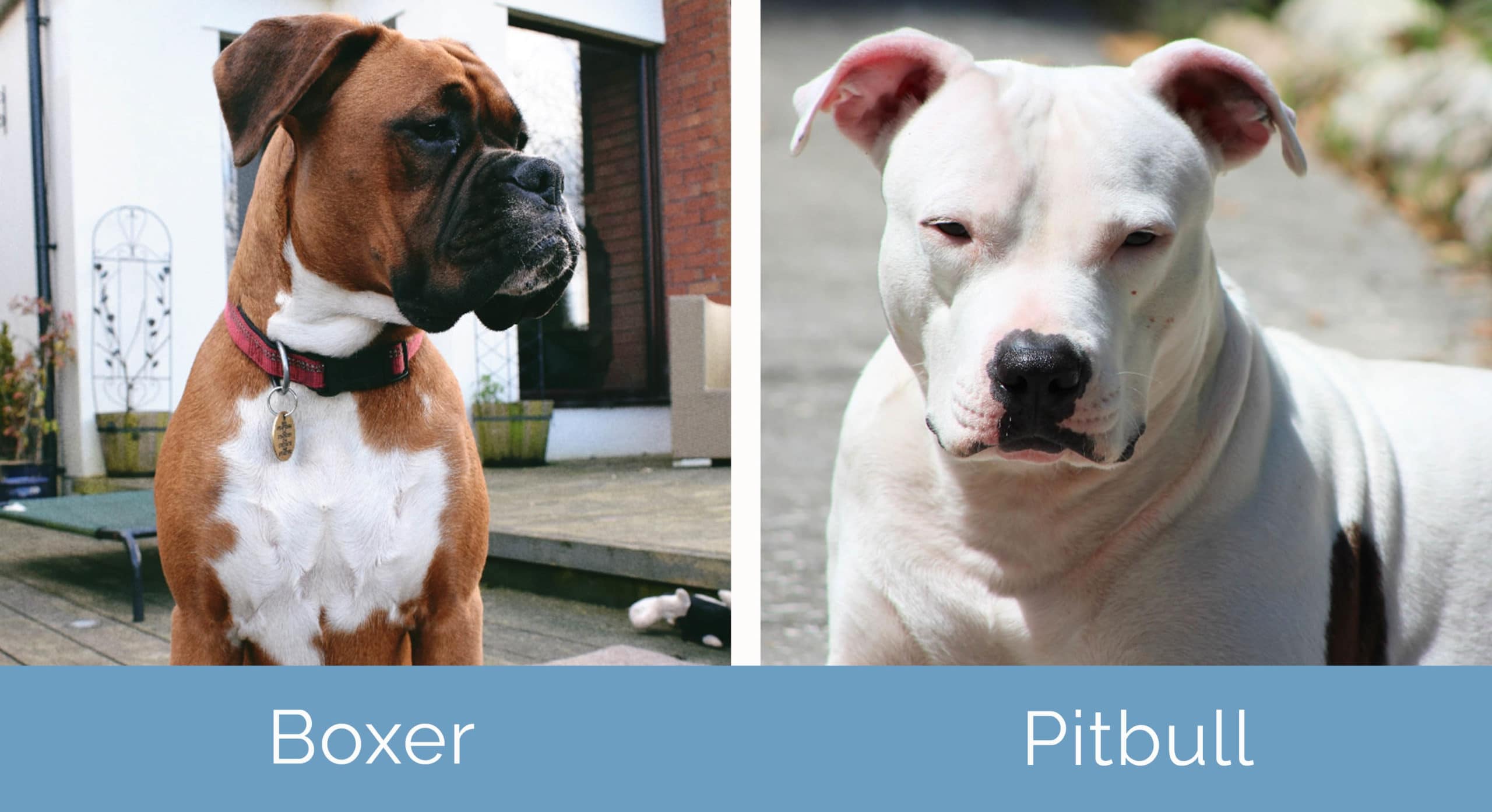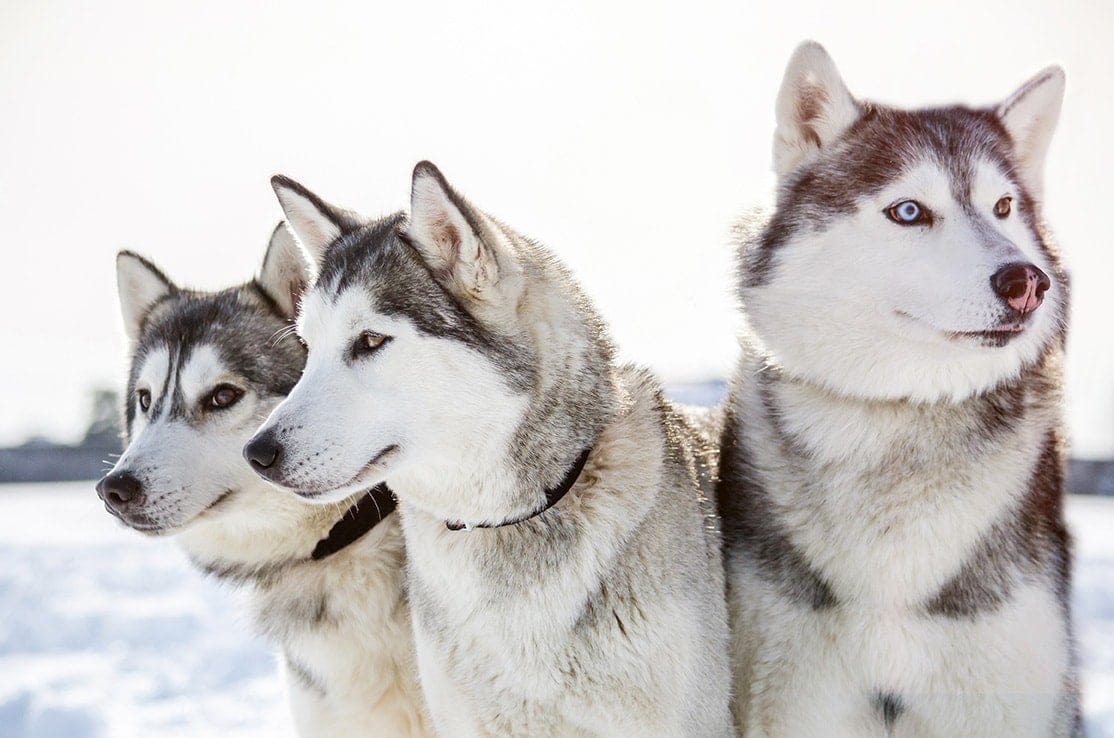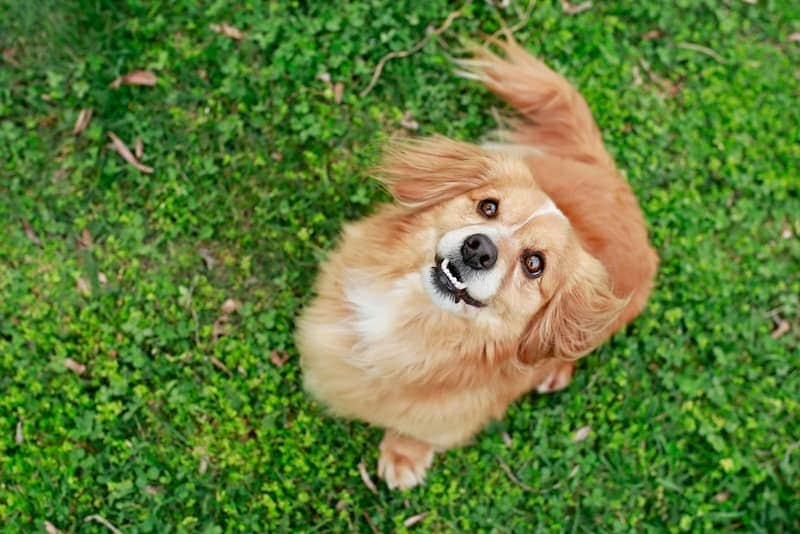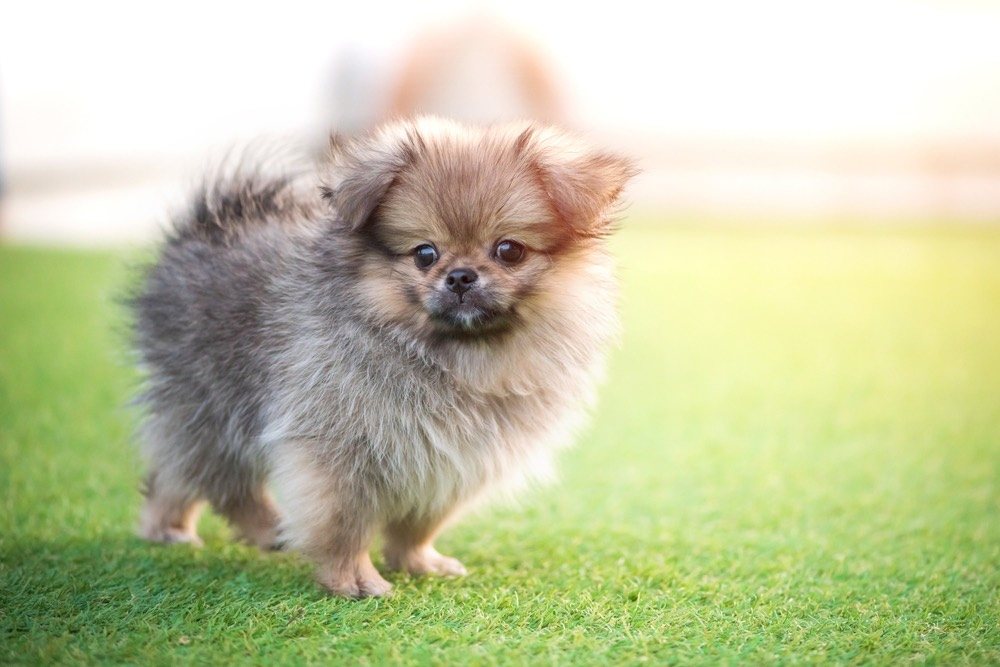Boxers vs Pit Bulls: What Are the Differences?
Updated on
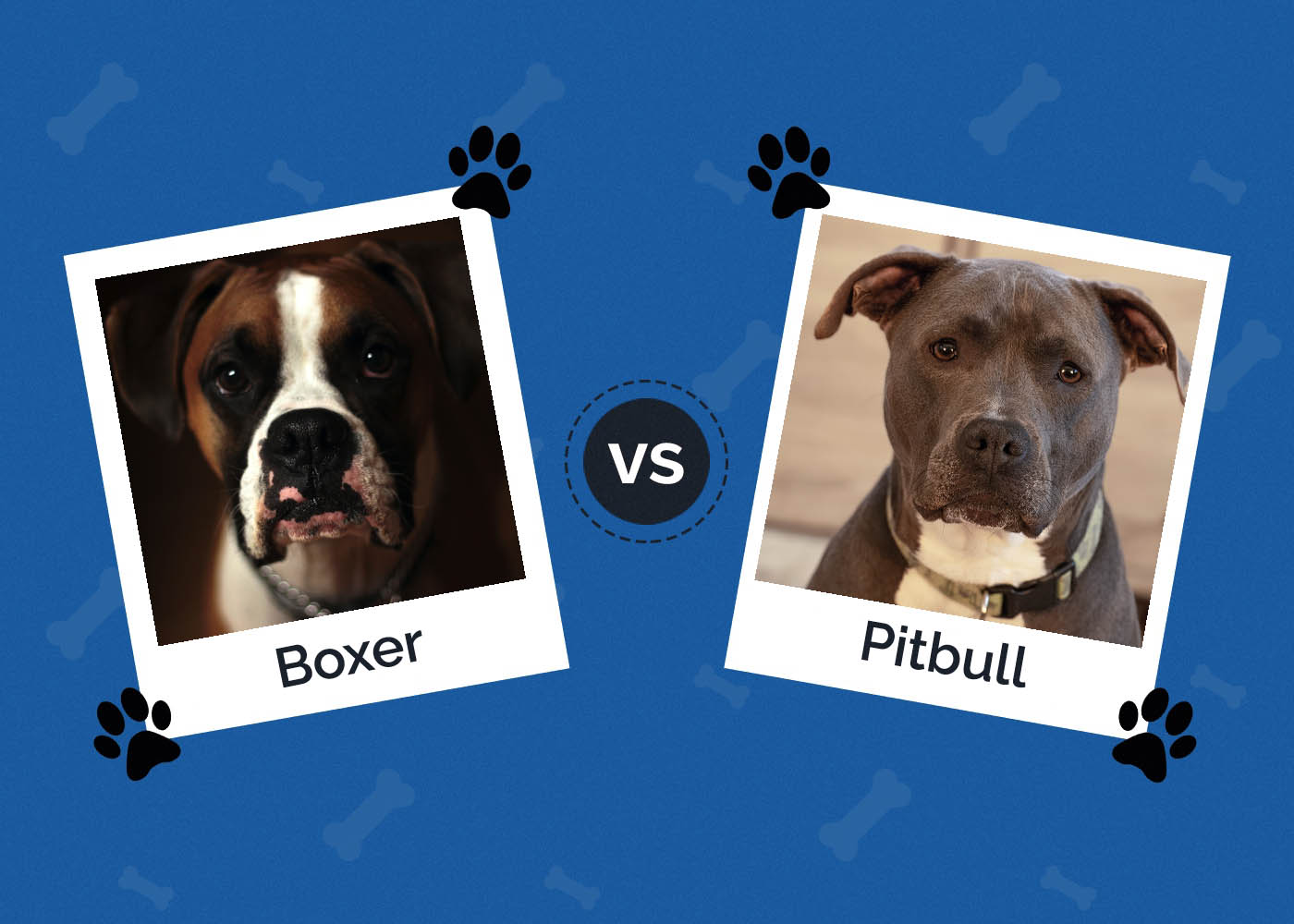
Boxers and Pit Bulls are two dogs that have quite a bit in common, yet they’re extremely different animals. They each started in unsavory conditions, as both breeds were used for blood sports hundreds of years ago (and sadly, continue to be used in that regard in some circles today).
However, the breeds enjoy vastly different reputations. Boxers are largely seen as big, goofy pups, whereas Pit Bulls are often considered outright dangerous. That reputation is largely undeserved, though, and Pit Bulls can make great family pets.
But which one should you introduce into your household? The answer will depend on a variety of key differences, which we explore in greater detail below.
Boxer vs Pitbull: Visual Differences
A Quick Overview
- Average Height (adult): 21–25 inches
- Average Weight (adult): 55–75 pounds
- Lifespan: 10–12 years
- Exercise: High; at least 2 hours per day
- Grooming Needs: Minimal
- Family-friendly: Yes
- Dog-friendly: Yes, although they may play too rough for some smaller breeds
- Trainability: High
- Average Height (adult): 17–21 inches
- Average Weight (adult): 30–60 pounds
- Lifespan: 10–15 years
- Exercise: Medium; at least 45–60 minutes per day
- Grooming Needs: Minimal
- Family-friendly: Yes, provided that they’re well-trained and socialized
- Dog-friendly: Low; they can get along with other dogs if raised with them but are best suited for single-pet households
- Trainability: High
Boxer Overview

Boxers are one of the most distinctive dog breeds in the world. They are extremely brachycephalic, which means they have a short, stubby nose.
The breed’s popularity makes them somewhat affordable, as you can get a purebred puppy for $700 or so. If you want a show-quality dog, though, that price can balloon to $2,000 or more.
Personality
Boxers are some of the goofiest dogs on the planet. They can be extremely energetic, and it’s not unusual to watch them tear around the yard in pursuit of…nothing. These dogs definitely march to the beat of their own drummer.
They’re great with kids, as they tend to be just as fixated on play as small children are. While Boxers aren’t prone to aggressiveness, you should still monitor your children around them, as these dogs are large and rambunctious, and they can easily bowl over a small child without meaning to.
Boxers will test your love for dogs, as they love nothing more than to climb in your lap and slobber all over your face. If the thought of that disgusts you, then this breed likely isn’t for you. They’re also prone to jumping, which you’ll need to curb if you don’t enjoy it.
They tend to get bored easily, so they’ll need frequent stimulation, or else they might turn to destructive behaviors like chewing or digging. Even if you give them plenty of exercise, it’s a good idea to make sure they have a ton of toys around to occupy them as well.
They’re also naturally protective of their families and can make excellent guard dogs. They’ll need to be socialized to ensure that their protectiveness doesn’t get out of hand, though, or else having guests over may be difficult.
Training
Training a Boxer can be a bit difficult, especially if you don’t know what you’re doing. The dogs do best with a firm, experienced hand.
There are two problems that many people report when trying to train a Boxer: These dogs are stubborn and they’re not that smart.
The first point is undoubtedly true. Boxers can be tremendously headstrong, and they often prefer to do what they want rather than what you’re asking them to do. That can easily be overcome with enough praise or treats, however (just don’t overdo the latter — you don’t want your dog to become obese).
The validity second point is less established. Many experts consider the Boxer to be of average intelligence, but that’s because they don’t necessarily respond quickly to obedience training. They can be quite smart when properly motivated, though, which is why it’s important to find a training style that they’ll respond to.
Positive reinforcement is the best way to get through to these animals, as they’ll grow resentful and even more stubborn if mistreated. Regardless, you’ll likely find training your Boxer to be a seemingly endless battle of wills, so it’s a good thing that they’re so cute.
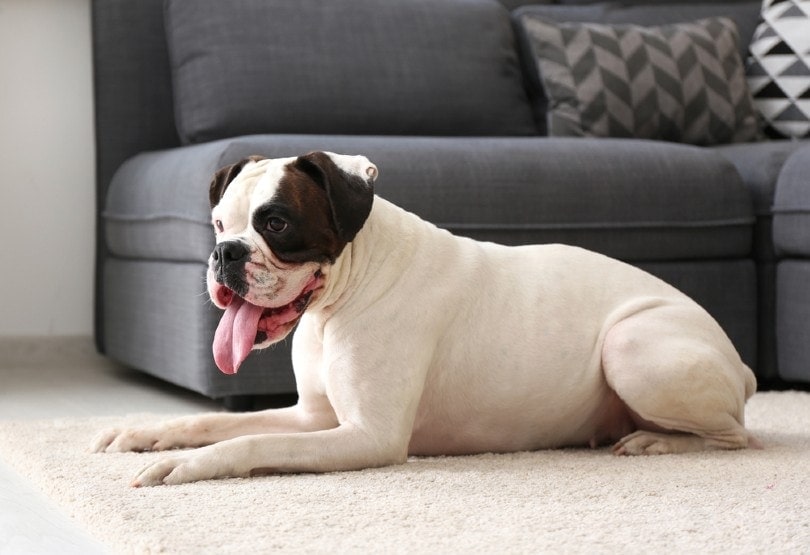
Health and Care
Given how energetic Boxers are, they need food that will give them the fuel that they need to run around all day. Typically, this is a kibble that’s high in protein and fat, with few quick-burning carbs.
You should also avoid problematic ingredients, like soy, wheat, corn, animal by-products, and artificial colors or flavors. These can cause your dog to pack on weight, and obesity is already a problem for the breed.
Their short coats don’t often need grooming, so you only need to brush them once every couple of weeks or so. They will need a bath every few months with a mild shampoo to control issues with dry skin, however. Beyond that, you’ll just need to brush their teeth, trim their nails, and clean their ears regularly.
These dogs are extremely brachycephalic, and that can lead to a variety of health issues. They don’t breathe well and are prone to overheating, so don’t exercise them too vigorously. They’re also prone to heart disease, cancer, joint disease, and various other ailments, so owning one could get expensive.
These dogs slobber frequently, so don’t expect to stay clean for long. They’re also extremely flatulent, which is due to being brachycephalic. If you’re not willing to put up with a little puppy gas, these room-clearing pups are not for you.
Suitability
Boxers are big, boisterous dogs, and they need owners who welcome that. If you like your dogs to be demure and well-behaved at all times, this probably isn’t the breed for you. However, if you’re fine being covered with mud, dog slobber, and who knows what else, you’ll have a blast with one of these pooches.
They make great family pets, but you’ll need to be careful that they don’t run over your smaller children. It’s better if you have a home with a large yard than a studio apartment if you want to adopt one of these energetic pups, but it’s possible to make it work anywhere, provided that you have access to a park of some kind.
You’ll also need to be able to pay for the medical bills that they’ll invariably rack up. These dogs are no strangers to vets’ offices, whether from play-related injuries or congenital diseases.
Pit Bull Overview

There are few animals as misunderstood as the Pit Bull. They’re even hard to identify, as they’re often lumped in with other boxy-headed dogs, like American Bulldogs, Bull Terriers, and even Boxers.
Buying a Pit Bull can be a dicey proposition. These are extremely common dogs, so you’d expect them to be cheap—but some can go for prices as high as $20,000! Unfortunately, there’s a dark side to that, as dogs that expensive are often used for fighting.
It can be difficult to find a reputable Pit Bull breeder, but the good news is that you can find one in just about any pound in the United States. Not only is that much cheaper, but you can be confident that you’re not dealing with criminals and you’ll save a wonderful dog’s life. Sounds good to us.
Personality
Pit Bulls are natural goofballs, and their broad smiles and fast-wagging tails do a great job of underscoring their sweet personalities. These dogs thrive on affection, and they’re not above climbing into your lap to get it.
Like Boxers, Pit Bulls are prone to slobbering. They love to kiss you on your face and then keep kissing you for as long as you’ll let them. If you’re a germaphobe or a neat freak, these aren’t the dogs for you.
They have a reputation for being vicious, but it’s important to understand that many Pit Bull-related attacks are from abused or neglected dogs, and the vast majority are just falsely attributed to Pit Bulls.
That’s not to say that these dogs aren’t capable of violence, because, like any breed, they have their moments. You shouldn’t leave them unattended with a child, but as long as you’re watching carefully, you’re likely to find that the Pit Bull is a patient and cheerful guardian.
In fact, that “guardian” nature is both a great strength and a weakness. It makes them loyal and fierce protectors of their homes and families, but unless properly socialized, they can be aggressive toward strangers, including strange dogs. It’s likely also best that you do not have any smaller animals in the house, as they do have a strong prey drive.
Training
Pit Bulls are intelligent and big people-pleasers, and that combination generally makes them easy to train. They can figure out commands in a short period, and they’re happy to keep doing them if it makes you happy as well.
However, they’ll occasionally flash a stubborn streak that will need to be overcome. It usually doesn’t manifest as disobedience so much as enthusiasm that’s difficult to redirect; basically, they’re not going to outright disobey, but it may be hard to get them to stop chasing a squirrel.
It’s important to use positive reinforcement when training your Pit Bull, as they don’t respond well to punishment. Remember, dogfighters use harsh punishments to make them mean and aggressive, so you don’t want to follow in their footsteps.
You can get them to do just about anything if you offer them a treat or affection. They’re muscular and athletic as well, so there’s little that they can’t be convinced to do if you have the time and determination.
Socialization is just as important as training. Exposing them to a variety of stimuli from an early age will go a long way toward heading off undesirable behaviors, like aggression.

Health and Care
Pit Bulls are naturally stocky and muscular, and they should remain that way. Unfortunately, they can quickly grow flabby if overfed and not provided with sufficient exercise. That’s why it’s important to give them a healthy, high-protein kibble, so they can run around to their heart’s content without packing on excess pounds.
These dogs are notorious for chewing on anything, so you’ll want to give them plenty of durable toys to ensure that they don’t go after your furniture. This satisfies their chewing instinct while also keeping them occupied, and it can help with everything from misbehavior to dental problems.
They have short coats like Boxers, and you shouldn’t have issues with shedding. Take a slicker brush to them once a week or so, and brush their teeth and trim their nails regularly. You’ll also want to keep their ears and the folds of skin on their face clean.
These dogs are more prone to skin and food allergies than many other breeds, so if you notice a rash breaking out or loose stools, you should investigate their diets. Many also have reactions to environmental allergens.
Beyond that, they’re a largely healthy breed, with hip dysplasia being the biggest concern that you’re likely to deal with.
Suitability
Pit Bulls are great family dogs, and they get along wonderfully with children. However, they tend to guard their families closely, so you’ll want to make sure they’re well-socialized before you have guests over.
This medium-energy breed does equally well in apartments or houses, but you’ll need to make sure you provide them with plenty of physical and mental stimulation. Otherwise, they could develop behavioral problems like destructive chewing.
Perhaps the biggest problem of owning a Pit Bull comes with society’s perceptions of the breed. Many people will look at you differently or outright avoid you while walking your dog, and many landlords and homeowner’s associations prohibit them. Your insurance premiums could go up as well.
If you’re willing to deal with the added expense (and to spend the time to raise them properly), then you’ll be hard-pressed to find a more loyal and loving companion than a Pit Bull.
What Are the Differences?
While Pit Bulls and Boxers have quite a few things in common, they have considerably more differences. Boxers are larger and more prone to health problems, while Pit Bulls are more likely to be discriminated against.
Aggression can be an issue with either breed, but it’s fairly easy to stamp out with proper training and socialization.
Boxers are definitely the more energetic of the two dogs, and as a result, they require more space. Pit Bulls can thrive in just about any environment—but both dogs will agree that the best place for them is right in the middle of your lap.
Featured Image By: (L) Jordan Davis, Unsplash | (R) J.A. Dunbar, Shutterstock

